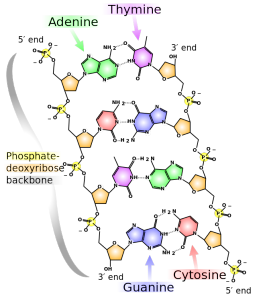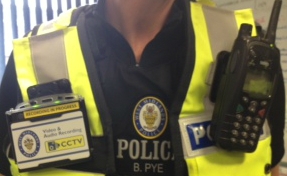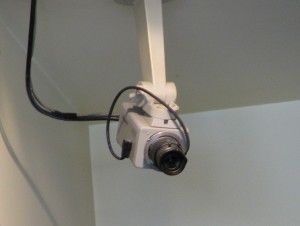J. Bradley Smith of Arnold & Smith, PLLC answers the question “Can I be arrested without evidence against me?”
Researchers in Stockholm, Sweden have published findings that appear to show a link between two genetic mutations and a propensity to commit violent criminal acts.
 The researchers studied the DNA of 800 Finnish criminals and compared it with 2,000 non-incarcerated Finns who had given DNA samples for a previous study. The researchers found that the two genetic mutations rendered individuals 13-times more likely than the general population to commit a violent crimes. The study did not draw a causal link between the mutations and violent crime.
The researchers studied the DNA of 800 Finnish criminals and compared it with 2,000 non-incarcerated Finns who had given DNA samples for a previous study. The researchers found that the two genetic mutations rendered individuals 13-times more likely than the general population to commit a violent crimes. The study did not draw a causal link between the mutations and violent crime.
Researchers hope the information is valuable to “offenders who want to break their cycle of repetitive violence.”
The study’s lead author, Dr. Jari Tiihonen, said researchers found that offenders with one of the two mutations experienced marked spikes in dopamine whenever they consumed drugs or alcohol, which could have fueled criminal activity.
Tiihonen suggested, for instance, that in addition to traditional forms of criminal punishment, offenders with certain genetic mutations could be administered drugs while incarcerated that “make it impossible… to use alcohol anymore… given the medication’s ability to make drinking unpleasant and distasteful.”
 Charlotte Criminal Lawyer Blog
Charlotte Criminal Lawyer Blog








 A recent piece in the journal Criminal Justice Ethics deals with a related theme, how the current criminal justice system financially incentives wrongful convictions. Specifically, the article noted how crime labs in many states are actually funded through court fees, something that the authors say act as a channel for bias to enter the crime lab analysis.
A recent piece in the journal Criminal Justice Ethics deals with a related theme, how the current criminal justice system financially incentives wrongful convictions. Specifically, the article noted how crime labs in many states are actually funded through court fees, something that the authors say act as a channel for bias to enter the crime lab analysis. To be a bit more precise, the DEA actually revealed that it seized 11.02 BTC (the abbreviation for Bitcoin), something that at the time amounted to $814.22. According to an online Bitcoin conversion website that same amount of Bitcoin today would be worth $1,524.29, a difference that reveals just how rapidly Bitcoin’s value can shift.
To be a bit more precise, the DEA actually revealed that it seized 11.02 BTC (the abbreviation for Bitcoin), something that at the time amounted to $814.22. According to an online Bitcoin conversion website that same amount of Bitcoin today would be worth $1,524.29, a difference that reveals just how rapidly Bitcoin’s value can shift. Magistrate Judge David Waxse took the unusual step of denying a governmental search warrant request according to a recent
Magistrate Judge David Waxse took the unusual step of denying a governmental search warrant request according to a recent